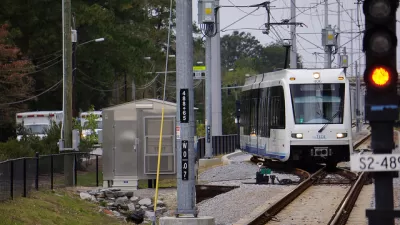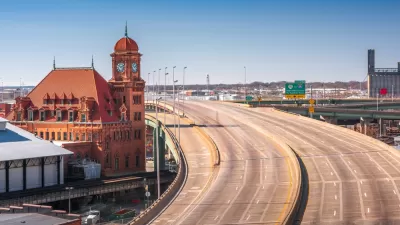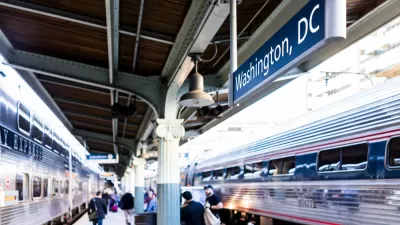An op-ed makes the case for the benefits of mixed-use development in Virginia, namely the creation of 24/7 environments for living, working, and playing.
To begin an op-ed in Virginia Business, Ryan Jenness cites the examples of two "much ballyhooed," but eventually failed projects from in Virginia during the mid-1980s—the Sixth Street Marketplace in Richmond and the Waterside park in Norfolk.
"Both Sixth Street Marketplace and Waterside provide sobering examples that the 'if you build it, they will come' philosophy works better in a Kevin Costner movie than in urban planning," writes Jenness.
But those examples were only a prelude to the current urban renewal efforts in Virginia, according to Jenness.
"The good news is that cities and developers alike have learned from missteps and assumptions. This is clear in the emergence and early success of so-called 'live/work/play' mixed-use communities in Virginia's metro areas. Much has been written about how these endeavors are popular with certain population subgroups, including millennials, empty-nesters, young professionals, and others looking for a short commute."
The difference between current efforts and the failed efforts of the past, according to Jenness, are the attention devoted to creating "24/7, 360 day per year" experience for residents—"not only living on-site, but also working, dining, shopping and entertaining." Jenness cites projects in Richmond, Norfolk, Roanoke, and Virginia Beach as examples of the new way of building.
The conclusion of the argument is more pragmatic then theoretical, and one that appeals to a broader audience in many types of communities: "The lesson to local governments, developers, and urban planners is clear: a one-dimensional retail project, regardless of popular support or any government subsidy, fails to attract people in the same way that a diverse, mixed-use residential project does. Consequently, a key component to real urban renewal lies in these live/work/play communities."
FULL STORY: Live/work/play: A key to Virginia’s urban renewal

Maui's Vacation Rental Debate Turns Ugly
Verbal attacks, misinformation campaigns and fistfights plague a high-stakes debate to convert thousands of vacation rentals into long-term housing.

Planetizen Federal Action Tracker
A weekly monitor of how Trump’s orders and actions are impacting planners and planning in America.

In Urban Planning, AI Prompting Could be the New Design Thinking
Creativity has long been key to great urban design. What if we see AI as our new creative partner?

King County Supportive Housing Program Offers Hope for Unhoused Residents
The county is taking a ‘Housing First’ approach that prioritizes getting people into housing, then offering wraparound supportive services.

Researchers Use AI to Get Clearer Picture of US Housing
Analysts are using artificial intelligence to supercharge their research by allowing them to comb through data faster. Though these AI tools can be error prone, they save time and housing researchers are optimistic about the future.

Making Shared Micromobility More Inclusive
Cities and shared mobility system operators can do more to include people with disabilities in planning and operations, per a new report.
Urban Design for Planners 1: Software Tools
This six-course series explores essential urban design concepts using open source software and equips planners with the tools they need to participate fully in the urban design process.
Planning for Universal Design
Learn the tools for implementing Universal Design in planning regulations.
planning NEXT
Appalachian Highlands Housing Partners
Mpact (founded as Rail~Volution)
City of Camden Redevelopment Agency
City of Astoria
City of Portland
City of Laramie





























